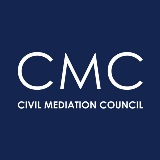*/

With huge gulfs in male/female earnings at the Bar now notorious, what is being done apart from restating the problem? Cue the Charter for Fairness, presented by Nicola Rushton KC and Yasmin Yasseri
Two years ago, in February 2021, Voices of Women at the Chancery Bar was published. Authored by Marcia Shekerdemian KC (former chair of the Chancery Bar Association’s equality and diversity (E&D) sub-committee) and assisted by Nicola Rushton KC (then chair of the same sub-committee), Tina Kyriakides and Elizabeth Houghton, this report was the end-product of four female-only roundtable discussions held in 2019 under Chatham House rules where participants shared their experiences, told their stories and voiced their concerns in a safe environment. (see ‘Voices of women at the Chancery Bar’, Marcia’s article in Counsel’s January 2022 issue telling the story of that report).
Further reports by other Specialist Bar Associations such as the Planning and Environmental Bar Association have identified similar divergence in the practices of their female and male practitioners.
In September 2021 the Bar Council published a report showing trends in barristers’ earnings over the last 20 years, split by sex, race and practice area. The report, which used anonymous income data from self-employed barristers shared by Bar Mutual Indemnity Fund (BMIF) showed that, while there were more women than ever working at the Bar, the gap between men’s and women’s earnings had widened over the period 2000-2020. In the 2022 update, published in October 2022, data showed that women in Chancery (Contentious) practice continue to earn 39% less than men in the same practice area. These huge gulfs in earnings, which were found to varying degrees across all practice areas, have become notorious since publication among women and people of colour at the Bar.
It would appear that progress is not really being made against static criteria so new approaches need to be explored which go beyond repeatedly identifying the problems.
After Voices was published, the Chancery Bar Association organised two well attended and powerful Zoom Q&A Panel sessions in the Spring of 2021. This led to a discussion document, Routes for Real Change, which we used to direct further roundtable discussions, this time with chambers’ decision-makers: senior barristers and clerking/management.
Now we have distilled all that experience and vision into a two-page Charter for Fairness in Work Allocation, Career Development, Marketing and Earnings at the Chancery Bar. This provides 12 practical recommendations for best practice for chambers – in all practice areas, not just at the Chancery Bar.
Our aim is that chambers will adopt it on their websites, use it to review internal processes and start conversations about how they can be improved. This will be for the benefit of all but especially women practitioners and those from other groups underrepresented at the Bar.
We are proud of the Charter and are keen to publicise it as much as possible. The 12 points for best practice are set out in the box above.
So please – adopt the Charter for Fairness and publish it on your websites. Help spread the word.
The Chancery Bar Association has also been giving support to our members in adopting the Charter and its recommendations. Alongside seminars on best billing practices, a workshop on fair allocation of work has been organised for the new year, in conjunction with the Bar Council.
The Charter provides a point of reference for all Chambers large and small, Chancery or not, to put into place policies and practices to assure those in leadership positions that they are doing everything they can to advance the careers of all their members equally. No doubt the Bar Council will continue to monitor earnings trends at the Bar and chambers will need to be ready to explain to their members, male and female, if change is not being achieved.
Finally, we must highlight the Black Inclusion Group’s report, also spearheaded by the Chancery Bar Association’s E&D committee, with that of Combar and TecBar, which makes for sobering reading.
Please adopt the Charter for Fairness and publish it on your websites.

Two years ago, in February 2021, Voices of Women at the Chancery Bar was published. Authored by Marcia Shekerdemian KC (former chair of the Chancery Bar Association’s equality and diversity (E&D) sub-committee) and assisted by Nicola Rushton KC (then chair of the same sub-committee), Tina Kyriakides and Elizabeth Houghton, this report was the end-product of four female-only roundtable discussions held in 2019 under Chatham House rules where participants shared their experiences, told their stories and voiced their concerns in a safe environment. (see ‘Voices of women at the Chancery Bar’, Marcia’s article in Counsel’s January 2022 issue telling the story of that report).
Further reports by other Specialist Bar Associations such as the Planning and Environmental Bar Association have identified similar divergence in the practices of their female and male practitioners.
In September 2021 the Bar Council published a report showing trends in barristers’ earnings over the last 20 years, split by sex, race and practice area. The report, which used anonymous income data from self-employed barristers shared by Bar Mutual Indemnity Fund (BMIF) showed that, while there were more women than ever working at the Bar, the gap between men’s and women’s earnings had widened over the period 2000-2020. In the 2022 update, published in October 2022, data showed that women in Chancery (Contentious) practice continue to earn 39% less than men in the same practice area. These huge gulfs in earnings, which were found to varying degrees across all practice areas, have become notorious since publication among women and people of colour at the Bar.
It would appear that progress is not really being made against static criteria so new approaches need to be explored which go beyond repeatedly identifying the problems.
After Voices was published, the Chancery Bar Association organised two well attended and powerful Zoom Q&A Panel sessions in the Spring of 2021. This led to a discussion document, Routes for Real Change, which we used to direct further roundtable discussions, this time with chambers’ decision-makers: senior barristers and clerking/management.
Now we have distilled all that experience and vision into a two-page Charter for Fairness in Work Allocation, Career Development, Marketing and Earnings at the Chancery Bar. This provides 12 practical recommendations for best practice for chambers – in all practice areas, not just at the Chancery Bar.
Our aim is that chambers will adopt it on their websites, use it to review internal processes and start conversations about how they can be improved. This will be for the benefit of all but especially women practitioners and those from other groups underrepresented at the Bar.
We are proud of the Charter and are keen to publicise it as much as possible. The 12 points for best practice are set out in the box above.
So please – adopt the Charter for Fairness and publish it on your websites. Help spread the word.
The Chancery Bar Association has also been giving support to our members in adopting the Charter and its recommendations. Alongside seminars on best billing practices, a workshop on fair allocation of work has been organised for the new year, in conjunction with the Bar Council.
The Charter provides a point of reference for all Chambers large and small, Chancery or not, to put into place policies and practices to assure those in leadership positions that they are doing everything they can to advance the careers of all their members equally. No doubt the Bar Council will continue to monitor earnings trends at the Bar and chambers will need to be ready to explain to their members, male and female, if change is not being achieved.
Finally, we must highlight the Black Inclusion Group’s report, also spearheaded by the Chancery Bar Association’s E&D committee, with that of Combar and TecBar, which makes for sobering reading.
Please adopt the Charter for Fairness and publish it on your websites.

By the Chartered Governance Institute UK Ireland

Q and A with Major Susie Brooke, Legal Officer in Army Legal Services

Have you considered being a barrister in the British Army? Here’s an insight into a career in Army Legal Services

Clare describes her journey from Crown Prosecution Service legal trainee to Senior Crown Prosecutor, a typical ‘day in the life’ and the inspiration she draws from her career

What's it like being a legal trainee at the Crown Prosecution Service? Amy describes what drew her to the role, the skills required and a typical day in the life

Barristers can learn more about the varied arenas in which their mediation skills can be deployed at the Civil Mediation Council Annual Conference on 6 and 7 November 2024